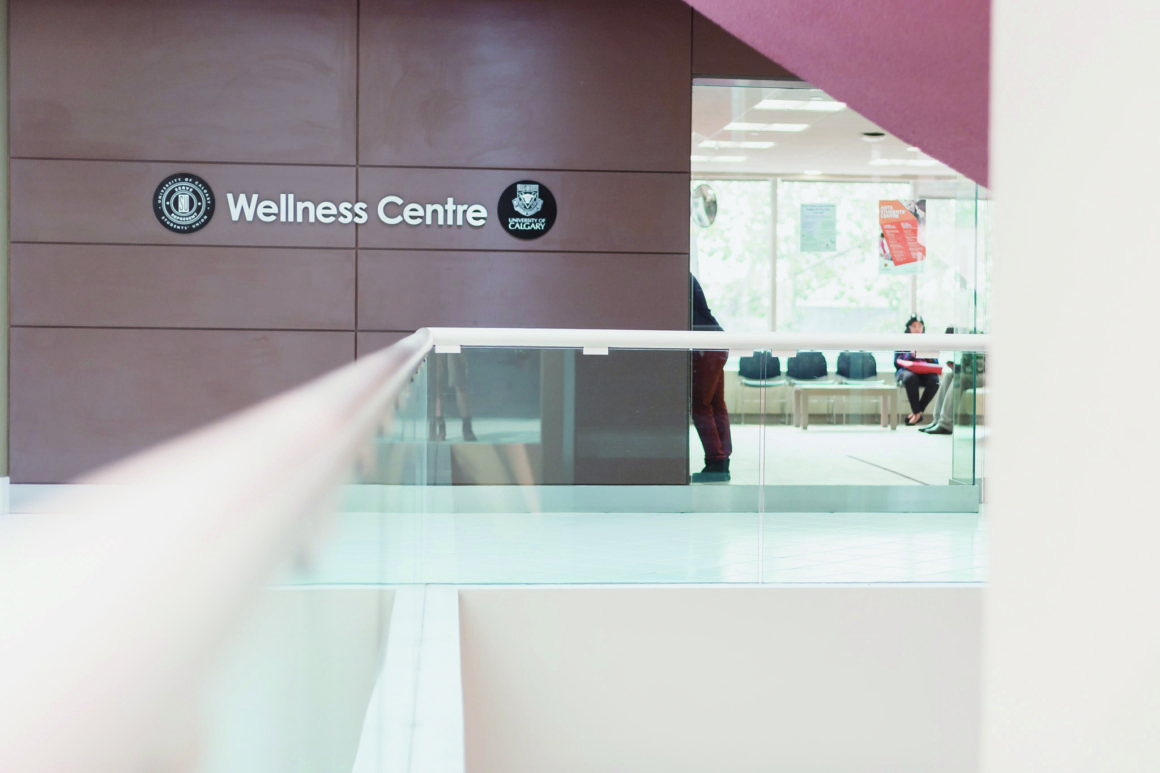
Mental health, the pandemic and the University of Calgary
By Afsah Dawood, March 15 2021—
Here at the University of Calgary, the Campus Mental Health Strategy (CMHS) is responsible for developing and furthering the mental health promotion and prevention agenda through its 28 recommendations divided into six focus areas. In an interview with the Gauntlet, Dr. Andrew Szeto, Director of the CMHS, says that the Strategy takes a “whole campus approach — everybody is included.” This includes not just students but faculty, staff and postdoctoral scholars as well.
In the face of COVID-19 lockdowns and restrictions, many services have had to adjust, however Szeto states that “we’ve pivoted very well […] and switched to a format that is more conducive for students, faculty and staff to access.” In terms of the effects that the pandemic has had on mental health, Szeto states that due to social isolation and lack of connections “the pandemic has affected our mental health negatively — we can’t deny that,” but he also suggests silver linings.
“The campus community has come together to support each other,” says Szeto “another positive that comes out of this pandemic is the awareness of mental health.”
One of the most prominent areas for obtaining mental health services and resources for students, in particular, are the Student Wellness Services. Students may be familiar with drop-in services such as Peer Listening, now available five days a week from 2 p.m. to 4 p.m. MST over Zoom. For students looking to speak to a licensed counsellor, Student Wellness Services offer Single-Session Counselling, a free-to-access service for students. While this form of counselling has no session limits, it is designed to be effective within one session and is especially helpful for students unable to commit to full-time counselling.
For students that require long-term counselling, Single Session Counsellors can also help in connecting to more helpful community support. This service is only available for students currently living in Canada, as the counsellors are licensed to work within Alberta. For international students not currently in Canada, International SOS provides up to five free sessions per incident per year. For Indigenous students, Szeto states “Student Wellness Services works with the Writing Symbols Lodge to better meet the needs of our Indigenous students on campus.”
For both Peer Listening and Single Session Counselling, Szeto notes how the pandemic has facilitated greater mental health support access to students. Peer Listening is now available all week, as opposed to the previous once a week, and Single Session Counselling no longer has a waitlist — all eligible students can have an appointment within five business days of booking. Szeto also mentions UFlourish, a month-long event with workshops dedicated to mental wellbeing and resilience that takes place during the Fall semester. About such workshops, Szeto says “during this pandemic we have had an increase in training and workshops. Students, faculty and staff are attending workshops more often now.”
Other direct-access resources offered by Student Wellness Services include workshops on mental health, mental health educational groups and online self-help resources and videos about common mental health struggles for students, such as anxiety and procrastination.
Graduate students on the GSA Health and Dental Plan also have access to the 24/7 wellbeing and resilience service Empower Me, which provides mental health support as well as a range of other coaching services.
For undergraduate students interested in taking a for-credit course about mental health, the Embedded Certificate in Mental Wellbeing and Resilience is available and developed as per one of the 28 recommendations brought forth by the CMHS. This certificate requires three core courses — PSYC 203, WELL 300 and WELL 400.
Faculty, staff and postdoctoral scholars seeking mental health have access to a mental health consultant during business hours. In addition to this, the University of Calgary offers resources to help navigate change for faculty, staff and postdoctoral scholars that include workshops, coaching, helpful PDFs and many other resources ranging from nutrition to food security. Faculty and staff have additional resources such as workshops available through the University of Calgary’s Human Resources department’s Staff Wellness page.
In addition to these available services, the CMHS — in conjunction with Student Wellness Services — is launching the Suicide Awareness and Prevention Framework. This is based on the Zero Suicide Framework wherein guiding principles and goals will be employed to reach the objective of no suicides on campus.
While it is clear that the CMHS and the University of Calgary have done a great deal for members of the wider campus community seeking mental health services and resources, Szeto acknowledges there remains room for improvement. “How do we incorporate mental health and wellbeing in classes? How do we get faculties to [offer] better supports to mental health online?” These are some of the questions he believes still need to be answered.
In addition to this, Szeto notes the advancements that can still be made towards greater inclusion in mental health services. “Some things that can still be improved are Indigenous engagement, equity, diversity and inclusion to increase the scope and breadth of the CMHS,” says Szeto, in the hopes of making “programs and offerings more inclusive and more conducive to the broad diverse campus community.”
Szeto encourages members of the wider campus community to reach out to him and the CMHS to provide feedback, saying “if people are interested in talking about mental health, I’m always here and the CMHS is always here to support the mental health of our campus community.”
